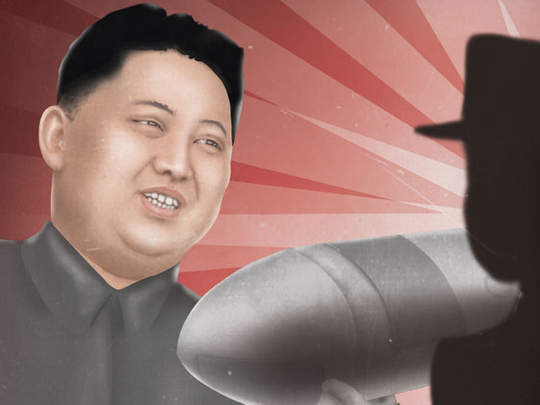
North Korea is threatening the US, South Korea and the world with hints of a third nuclear test and with continued development of ballistic missiles and rockets. The US and the UN have justifiably condemned the moves and tightened sanctions.
However, let us remember that the globe’s most closed nation also directly threatens its own people — depriving them of food and freedom, torturing and imprisoning them. This tightly controlled country has one of the worst human rights records in the world. The UN must act against this threat, too.
At its meeting in March, the UN Human Rights Council has a perfect opportunity to approve a “commission of inquiry” to investigate crimes against humanity in North Korea, but such a proposal must be put forth by a government or group of governments. The idea, first proposed more than five years ago, has gained momentum since 2011, when more than 40 human rights organisations from around the world met in Tokyo and formed the International Coalition to Stop Crimes Against Humanity in North Korea.
What will such a UN inquiry achieve?
It is likely that North Korea will not cooperate with it, but investigators can interview thousands of victims of the regime, who now live outside the country. It can assemble a body of evidence and provide an assessment that will carry the full weight, authority and independence of the UN. It will shine a light on North Korea’s crimes, potentially causing the regime to at least temper its abusive behaviour. It can lead to the perpetrators of these crimes finally being held to account. Previous commissions of inquiry, like the one into the killings in the Darfur region of Sudan, had led to a recommendation to the UN Security Council that the case be referred to the International Criminal Court. That resulted in a warrant for the arrest of Sudan’s leader Omar Al Bashir. Other examples include Syria, where it was concluded that war crimes and crimes against humanity were taking place, and Burundi, Rwanda and Libya.
A commission of inquiry does not necessarily stop the violations or lead to the perpetrators being brought to justice, but it does at the very least focus the glaring light of the UN on a situation — something long overdue in North Korea.
In North Korean society, a climate of fear and total control pervades. One small step out of line, often inadvertent, can land you in one of the notorious prison camps, often ending in death.
Mistakes as simple as sitting on an old newspaper that contains a picture of one of the North Korean leaders from the Kim family — past or present — can result in horrific torture or years in the camps. So, too, can a deliberate but small expression of defiance, such as watching a South Korean DVD, listening to foreign radio broadcasts, or possessing a Bible.
Unimaginable conditions
An estimated 200,000 people are in the prison camps. Even at the worst times in Myanmar, a country which came close to rivalling North Korea in oppression, there were only about 2,000 political prisoners. Unlike in Myanmar, where there were dissidents who actively chose to oppose the regime, most of North Korea’s detainees are not “political” at all.
Conditions in these camps are unimaginable and have been well-documented over the years by human rights organisations such as Amnesty International, Human Rights Watch and Christian Solidarity Worldwide, as well as by experts such as David Hawk, whose report ‘The Hidden Gulag’ helped reveal the extent of the system.
Testimonies from North Koreans who have fled the country tell of widespread and systematic use of horrific forms of torture, sexual violence and executions in the camps.
Abuses are so widespread and severe that the former UN special rapporteur on human rights in North Korea, Vitit Muntarbhorn, described the country as “sui generis (in its own category)”. He called on the UN to consider whether the case of North Korea should be taken up “at the pinnacle of the system”.
The current composition of the UN Human Rights Council means that a proposal to form a commission of inquiry stands a good chance of being passed. So it is now a matter of leadership and initiative. A government, or a group of governments, most likely from Europe — but with a strong backing from Japan, South Korea and the US — needs to respond to the challenge and put forward a recommendation. The idea already has the backing of the UN’s High Commissioner for Human Rights and the Special Rapporteur. Parliamentarians and legal experts from around the world have given it their support. Human rights organisations are calling for it. The time to act is now.
— Christian Science Monitor
Benedict Rogers is the East Asia team leader for Christian Solidarity Worldwide. Jack Rendler is the North Korea country specialist for Amnesty International USA.










